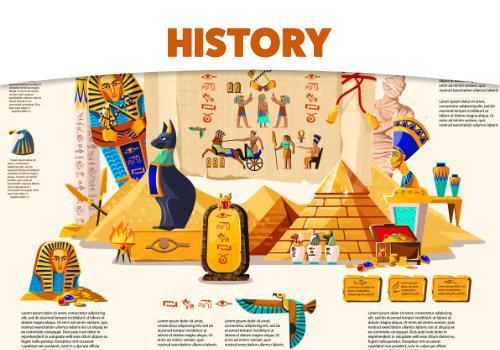The National Curriculum History
| The National Curriculum KS1 History Programme | |
| The National Curriculum KS2 History Programme |
Intent
History at St Mary’s is promoted through a question based curriculum, providing opportunities to research answers, solve problems and develop historical skills. The school is well resourced, has its own schemes of work which was developed to ensure National Curriculum coverage and progression from each year group. Exciting topics such as, ‘How did Oldham help change the world?’ and ‘Why did dinosaurs rule the world?’ engage the children and motivate them to learn about the past.
Aims
- know and understand the history of these islands as a coherent, chronological narrative, from the earliest times to the present day: how people’s lives have shaped this nation and how Britain has influenced and been influenced by the wider world
- know and understand significant aspects of the history of the wider world: the nature of ancient civilisations; the expansion and dissolution of empires; characteristic features of past non-European societies; achievements and follies of mankind
- gain and deploy a historically grounded understanding of abstract terms such as ‘empire’, ‘civilisation’, ‘parliament’ and ‘peasantry’
- understand historical concepts such as continuity and change, cause and consequence, similarity, difference and significance, and use them to make connections, draw contrasts, analyse trends, frame historically-valid questions and create their own structured accounts, including written narratives and analyses
- understand the methods of historical enquiry, including how evidence is used rigorously to make historical claims, and discern how and why contrasting arguments and interpretations of the past have been constructed
- gain historical perspective by placing their growing knowledge into different contexts, understanding the connections between local, regional, national and international history; between cultural, economic, military, political, religious and social history; and between short- and long-term timescales.
Implementation
Our history topics have been handpicked to ensure they cover the National Curriculum expectations and that they reflect prior knowledge and skills, so these can be developed, challenged, and strengthened as the children move through school. All children have access to trips, visits and experience days throughout their time at St Mary’s. We understand and value the impact these opportunities have for our pupils to ensure involvement and enjoyment of history and in bringing the past to life! History is taught as part of half termly topics, focusing on knowledge and skills stated in the National Curriculum
Planning
St Mary’s long term planning has been developed to ensure coverage and progression across the whole school. Planning builds on prior learning. Topics are planned to ensure coverage through different periods in History.
Progression
We assess children’s work in history by making informal judgements as we observe them during each history lesson. On completion of a piece of work, the teacher marks the work and comments as necessary, in accordance with the marking policy. At the end of a unit of work, the teacher makes a summary judgement about the work of each pupil in relation to the National Curriculum year group expectations. These assessments are given to the Assessment leader, history leader and the next class teacher.
Cross Curricular
Our carefully planned History topics ensure teachers plan for as many cross curricular links as possible during their history lessons. History contributes significantly to the teaching of Literacy in our school by actively promoting the skills of reading, writing, speaking and listening. Some of the texts that we use in Literacy are historical in nature. Children develop oracy through discussing historical questions or presenting their findings to the rest of the class. They develop their writing ability by composing reports and letters and through using writing frames.
Resources
There are resources for all history teaching units in the school. Each class has their own resources for each topic which they keep in their own classroom. The library contains a good supply of topic books and software to support children’s individual research. Visits to local places of interest and museums are used to enrich the children’s learning. Visitors to school used to enhance the learning, for example,...
Displays
Displays are used as a celebration of the children’s work, and may include photos. Sometimes displays will be used as a working knowledge wall.
Monitoring
Coming soon...
Impact
What’s the impact as a result of learning this subject?
We aim to provide children with an understanding of the chronological timeline for History. We would like to instil within children a passion for history which ignites their curiosity about the past and how that has shaped our lives today.
Pupil Voice
Coming soon...
Evidence in Knowledge
A high-quality history education will help pupils gain a coherent knowledge and understanding of Britain’s past and that of the wider world. It should inspire pupils’ curiosity to know more about the past. Teaching should equip pupils to ask perceptive questions, think critically, weigh evidence, sift arguments, and develop perspective and judgement. History helps pupils to understand the complexity of people’s lives, the process of change, the diversity of societies and relationships between different groups, as well as their own identity and the challenges of their time.
Evidence of Skills
Children are taught to interpret the past and understand chronology through the key stages. We assess children’s work in history by making informal judgements as we observe them during each history lesson. On completion of a piece of work, the teacher marks the work and comments as necessary, in accordance with the marking policy. At the end of a unit of work, the teacher makes a summary judgement about the work of each pupil in relation to the National Curriculum year group expectations. These assessments are given to the Assessment leader, history leader and the next class teacher. At the end of each school year we expect the children to have reached the age related expectations.
History Learning Resources
Please click on the links below to access our resources.
